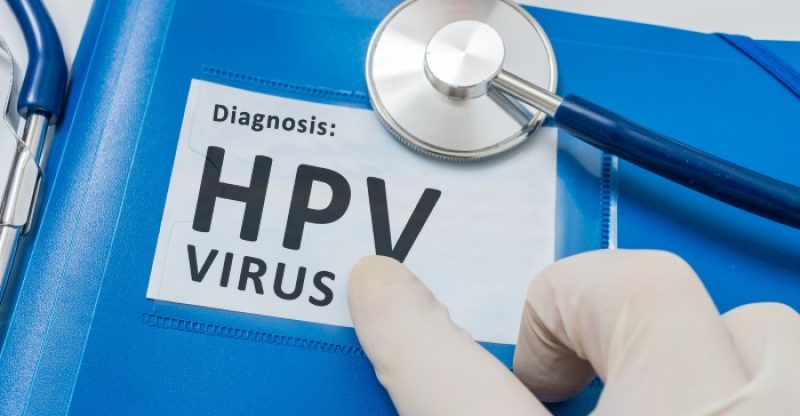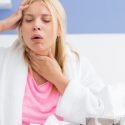HPV Symptoms, Treatments and Natural Remedies
HPV, or the human papillomavirus, is the most common sexually transmitted disease (STD) in the U.S. today.
HPV can cause genital warts, and some forms of the virus place you at higher risk of developing certain types of cancer.
It is essential that everyone knows how to prevent HPV and how to address it if you should contract this disease.
Our guide helps you understand HPV, its symptoms, and why it is important to treat it.
We also share with you the top natural remedies for dealing with HPV at home.
Because HPV affects almost half of all adults in the US, it is crucial that we understand its causes, the implications of having this disease, and how to treat it should we become infected with it.
Keep reading to learn about the prevalence of HPV in our population, how this disease is spread, and the various ways HPV can impact your life and health.
Understanding HPV
The human papillomavirus (HPV) has two different forms.
One is genital HPV, and the other is oral HPV.
Current estimates are that at least 43 percent of all adults between the ages of 18 and 59 are infected with genital HPV, and nearly 12 percent of adults are infected with oral HPV (1, 2).
More concerning are the numbers of people infected with high-risk HPV, which is more likely to lead to cancer.
Nearly one in four American has this type of HPV, which puts them at risk for various types of cancer of the reproductive area, mouth, and throat (3).
That means that currently, nearly 80 million people have some form of HPV in the U.S.
Knowing how to prevent and treat this disease has never been more critical.
In addition to recognizing the symptoms of HPV, you should also understand how to prevent this disease, as well as treat it both conventionally and naturally.
Symptoms of HPV
HPV is not just one virus, but instead is a group thereof that is very common and highly infectious.
HPV is shared through skin-to-skin contact, most likely during sexual activity.
While there are over 100 types of HPV, only 13 of these are categorized as high risk because they cause cancer.
While the majority of HPV strains do not cause any or only cause minor problems, these 13 strains are responsible for cancers of the penis, vagina, vulva, and anus.
Two of these strains, in particular, known as HPV-16 and HPV-18, cause nearly three out of four cases of cervical cancer or cervical lesions.
Two strains, HPV-6 and HPV-11, cause genital warts and a disease known as respiratory papillomatosis, wherein tumors grow in your respiratory tract (4).
Because there are so many strains of HPV, there are also a number of symptoms for this disease.
Many people can have HPV and never experience any symptoms or problems.
Often, HPV symptoms will clear on their own without medical treatment.
The following are the most common, noticeable symptoms of HPV (5):
- Genital warts that usually appear white, and are raised with an irregular surface. While uncomfortable and sometimes causing pain, genital warts are usually not itchy. In men, genital warts are most common on the penis or scrotum, or near the anus. In women, warts are usually on the vulva but can grow on the cervix, inside the vagina, or near the anus.
- Flat warts are caused by a strain of HPV, and these appear on many parts of the body, including the face, in men’s beards, and on women’s legs.
- A strain of HPV also causes plantar warts. These hard, fleshy warts grow on the weight-bearing areas of your foot sole, and they often become flattened due to pressure from standing. Always wear shoes in public places, especially showers and locker rooms, to prevent the spread of this strain of HPV.
- Common warts that grow on your fingers, elbows, and hands are caused by HPV, as well.
- Oral warts that form in your mouth are also a sign of HPV infection.
HPV-16 is one of the 13 high-risk strains that can cause cancer, and this particular strain is responsible for cancers of the mouth and pharynx.
The following are signs that you could have oral cancer caused by HPV (6):
- Difficulty swallowing;
- Chronic hoarseness;
- Coughing up blood;
- A lump on the cheek or neck;
- A sore throat;
- Pain or swelling of the jaw;
- Patches of white or red on the tonsils;
- Numbness of the tongue;
- Enlarged lymph nodes;
- Unexplained weight loss;
- Chronic earaches.
If you have any of these symptoms, see your doctor immediately.
Because HPV is also responsible for nearly three-fourths of all cases of cervical cancer, it is essential to know the signs of this disease.
Having a regular Pap screen will help you see if you are at risk of developing this illness, but recognizing the symptoms is also important.
The most common symptoms of early-stage cervical cancer include (7):
- Bleeding between menstrual cycles;
- Bleeding in post-menopausal women;
- Bleeding after intercourse;
- Pain or discomfort during sex;
- Vaginal discharge with traces of blood;
- Pain in the pelvic region;
- Vaginal discharge with a strong smell.
Many of these are also symptoms of infection or other causes.
If you experience any of these, please see a doctor.
Causes and Risk Factors for HPV
HPV spreads through vaginal, anal, and oral sex.
Any skin-to-skin contact can spread HPV, not just sexual activity.
Infected mothers can even spread the disease to their children during delivery.
If you are sexually active, you are at risk for contracting HPV.
You can lower your risk of contracting HPV by using condoms or being in a mutually monogamous relationship, but the only true preventative measure is abstaining from all sexual contact (8).
If you are pregnant and have HPV, talk with your doctor about additional risks to you or your baby.
Treating HPV Conventionally
There is no known cure for HPV, but there are ways to treat some of the symptoms and side effects of an HPV infection.
The most common forms of conventional treatment for HPV include antiviral medications, topical medicines, and minor surgery to remove genital warts.
You must see your doctor to be diagnosed with any of the strains of HPV.
A Pap smear is one way for women to know if they are at risk for HPV-related cancers.
For women, a colposcopy test can also be performed to provide a closer examination of the cervix, vulva, and vagina.
While HPV and its associated symptoms usually clear on their own, it is essential to monitor your health if you have any of the high-risk strains of this disease.
If you are planning to conceive or are currently pregnant, talk with your doctor before starting any treatment for HPV.
Men who are at high risk for HPV and HPV-related cancers can be screened by their doctor for anal cancer.
If you have genital warts or other symptoms, you should see your doctor.
The best way to prevent the spread of HPV in men is always to use a condom, but the only way to be sure is to abstain from sex and sexual contact altogether (9).
While there is no cure once you have HPV, you can prevent HPV with a vaccine.
Three vaccines are currently available for HPV, and the Centers for Disease Control and Prevention recommend that children between 11-12 years old be vaccinated for this preventable disease.
If you are not vaccinated as a child, you can still be vaccinated up to age 21 for men and age 26 for women.
If you are not vaccinated against HPV, chances are high that you will need to seek treatment for HPV at some point in your life.
The following are our most trusted and popular natural treatments for many common strains of HPV.
Treating HPV Naturally
Because HPV is a virus, natural antiviral remedies can be helpful in treating this disease.
In addition, boosting your immune system can support your body’s fight against the virus that causes HPV.
The natural remedies outlined below should be used in conjunction with more traditional treatments, and always in consultation with your doctor.
Because some forms of HPV can be dangerous, you should use natural treatments that complement other remedies prescribed by your physician.
Always talk with your doctor before treating genital warts at home.
Change Your Diet
There are many herbs with antiviral properties that can help you fight both HPV and warts this virus often causes.
Many foods are also rich in antioxidants and other immune-boosting properties, so including as many of these as possible in your diet will be helpful.
Foods with high levels of Vitamin C will help boost your immune system.
Think of brightly-colored foods for this category, including bell peppers, citrus fruits, and berries.
Your immune system depends significantly on the health of your gut, so keep it running smoothly with lots of probiotics.
For this category, reach for fermented and cultured foods like yogurt, kefir, kimchi, sauerkraut, kombucha, and tempeh.
You’ll get lots of Vitamin A and other essential nutrients from green leafy vegetables like spinach, kale, collard greens, and turnip greens.
Use Herbal Treatments
Many herbs have antiviral properties, and also support your immune system while it is fighting HPV.
Herbs have many other benefits, as well, so use these in your recipes, in herbal teas, or as part of infusions.
Possibly the most well-known immune-boosting herb, echinacea also helps fight HPV.
Using this herb in teas or tinctures can diminish the appearance of warts, and the antioxidants in echinacea help produce white blood cells, which improves your immune system’s ability to fight the virus.
Goldenseal is another popular antiviral herb.
As a tincture, goldenseal can be applied directly to genital warts.
As an herbal supplement, the antiseptic and antiviral properties can help treat the virus from the inside (10).
Astragalus, with its antioxidant, antibacterial, and antiviral properties, can help eliminate HPV.
Astragalus stimulates the production of interleukin-2, known for its antiviral properties, and can even help prevent cancer, which is an added bonus for some strains of HPV.
Garlic has plenty of antiviral properties, making it a natural choice for fighting warts.
Soak garlic in water overnight, then use the water to treat genital warts (11).
Oregano essential oil’s antioxidants and antiviral compounds make it another excellent choice for treating HPV (12).
Always dilute oregano oil with a carrier oil before applying to your skin, as it can cause slight irritation.
Mushrooms, curcumin, elderberry, cat’s claw, ginger, licorice root, and olive leaf are also important antiviral herbs that could be used in the treatment of HPV.
Try Essential Oils
Many of the herbs listed above work best as essential oils.
Other essential oils that can also be used to treat HPV include tea tree, calendula, and Thuja essential oils.
Tea tree’s antimicrobial properties make it an effective topical treatment for many skin disorders, and treating warts is one way to use tea tree’s benefits to combat HPV.
Mix it with coconut oil or some other carrier oil in equal parts, and never ingest tea tree oil.
This effective treatment also works for fungal infections, like Candida or nail fungus.
Calendula oil, which is made from marigolds, reduces inflammation and promotes skin healing, including from HPV warts.
You can consume calendula oil, or you can make a suppository using this oil to treat anal or vaginal warts.
While not as readily found, Thuja oil is an extremely effective treatment for warts.
Thuja oil comes from the Thuja tree, native to North America and East Asia.
This essential oil should always be diluted before using on skin, as it can cause irritation (13).
Be sure to test this oil on your skin before using it in sensitive areas.
Make Your Own Wart Remover
In addition to using the above herbs and essential oils, you can create your own natural wart remover, which can be used to treat common or oral warts.
If you are using this to treat genital warts, leave out the oregano oil, as it can severely irritate delicate genital skin.
Start by combining one-half teaspoon of apple cider vinegar, one drop of oregano essential oil, and two drops of frankincense, stirring until combined.
Next, add two drops of lemon essential oil, and blend again.
Finally, add one-half teaspoon coconut oil.
You may need to warm this slightly to get it to blend all together.
Be sure all ingredients are thoroughly combined, then use a cotton ball to apply the mixture to any affected area.
Cover with a clean bandage.
Use this remover twice a day until the wart disappears completely.
Preventing HPV
HPV has no cure, and since some forms of the disease can lead to cancer, it is essential you protect yourself against this virus.
Avoiding sexual activity is the only sure way to prevent HPV, but using the following precautions can significantly enhance your chances of preventing HPV if you choose to have sex.
- Always use a condom. While you can still contract HPV through skin-to-skin contact, even with a condom, using condoms still dramatically lowers your risk of transmission through the anus, vagina, or penis. Condoms are also effective at preventing other STDs, making them an excellent choice any time you have sex (14).
- Do not have sex with anyone who has a wart outbreak. Whether genital or oral, warts are a sign of an active infection.
- Having sex only with a monogamous partner reduces your chances of becoming infected. When you reduce your number of partners, your chances of contracting an STD are reduced, too. Because you can have an HPV infection and not show symptoms, you can still contract this virus from a monogamous partner who was exposed previously, though.
Precautions
HPV is a highly contagious disease that is sexually transmitted.
There are over 100 strains of this virus, and many of these strains can cause cancer.
Protecting yourself against HPV is therefore important for your health.
There is no cure for HPV, but there are vaccines available that work best when used to treat children and early adolescents.
Because there are many different strains, the symptoms of HPV vary, and many people can have HPV but have no symptoms at all.
Generally, all forms of warts are caused by some strain of HPV.
Women especially should be screened regularly for HPV, as this can cause cervical cancer.
Natural treatments for HPV include herbs and a diet high in antiviral foods and plants, using essential oils to treat warts, and boosting the immune system through healthy foods rich in antioxidants.
Because HPV is highly contagious, prevention is crucial.
While abstaining from all forms of sexual contact is preferred, using a condom and having a monogamous partner can also lower your risk of contracting HPV.
FDA Compliance
The information on this website has not been evaluated by the Food & Drug Administration or any other medical body. We do not aim to diagnose, treat, cure or prevent any illness or disease. Information is shared for educational purposes only. You must consult your doctor before acting on any content on this website, especially if you are pregnant, nursing, taking medication, or have a medical condition.
HOW WOULD YOU RATE THIS ARTICLE?







Great article! I really like info provided by you. Thanks and keep sharing.